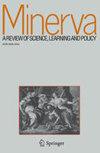研究经费纯抽签的新论点:未来科学政策的草图,没有耗时的拨款竞争
IF 3.2
2区 哲学
Q1 EDUCATION & EDUCATIONAL RESEARCH
引用次数: 0
摘要
在研究政策、科学技术研究和科学哲学领域,关于使用摇号系统分配校外资助可能带来的好处和局限性,出现了一场激烈的辩论。在支持彩票理念的人中,最常见的观点是,如果适当地与同行评审相结合,某种形式的改良彩票是可以接受的。这意味着部分随机化只能在专家们筛选了所有提交的提案的追求价值并整理出质量最低的提案之后才能应用。在本文中,我将反对使用部分彩票或部分随机化,而是提倡使用纯彩票,同时大幅增加区块资金。持这种立场的主要原因是,部分抽签不能解决当前基于拨款竞争和同行评审的资助体系中固有的问题。部分抽签不能减少巨大的时间浪费,减少研究人员之间的时间分配不均,中和专家偏见或减轻学术权力不对称。相反,我们需要通过实施一个更全面的模式来组织未来的研究机会,从而更加注重改善学术界的一般时间管理。本文章由计算机程序翻译,如有差异,请以英文原文为准。

New Arguments for a pure lottery in Research Funding: A Sketch for a Future Science Policy Without Time-Consuming Grant Competitions
Abstract A critical debate has blossomed within the field of research policy, science and technology studies, and philosophy of science regarding the possible benefits and limitations of allocating extramural grants using a lottery system. The most common view among those supporting the lottery idea is that some form of modified lottery is acceptable, if properly combined with peer review. This means that partial randomization can be applied only after experts have screened the pursuit-worthiness of all submitted proposals and sorted out those of lowest quality. In the present paper, I will argue against the use of partial lotteries or partial randomization and instead promote use of a pure lottery in combination with a radical increase in block funding. The main reason for holding this position is that a partial lottery cannot solve the problems inherent in the current funding system, which is based on grant competitions and peer review. A partial lottery cannot decrease the enormous time-waste, reduce the uneven distribution of time between researchers, neutralize expert biases or mitigate academic power asymmetries. Instead, we need a stronger focus on improving general time management in academia by implementing a more holistic model for organizing research opportunities in the future.
求助全文
通过发布文献求助,成功后即可免费获取论文全文。
去求助
来源期刊

Minerva
Multiple-
CiteScore
5.20
自引率
4.30%
发文量
26
期刊介绍:
Minerva is devoted to the study of ideas, traditions, cultures and institutions in science, higher education and research. It is concerned no less with history than with present practice, and with the local as well as the global. It speaks to the scholar, the teacher, the policy-maker and the administrator. It features articles, essay reviews and ''special'' issues on themes of topical importance. It represents no single school of thought, but welcomes diversity, within the rules of rational discourse. Its contributions are peer-reviewed. Its audience is world-wide.
 求助内容:
求助内容: 应助结果提醒方式:
应助结果提醒方式:


